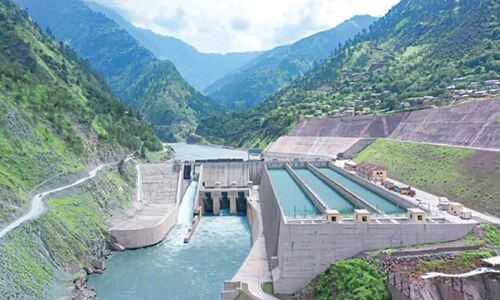TORONTO: Opec is back in action - endeavouring to fine-tune global crude supplies as per the needs. Wrong footing pundits and overcoming scepticism, two days of round-the-clock deliberations in Algiers resulted in a land mark agreement, with the group agreeing to slash output to 32.5 million barrels per day (mbpd) -- from 33.24mbpd in August.
“We have decided to decrease the production around 700,000 bpd,” Iranian Oil Minister Bijan Zanganeh told reporters after the meeting. “Opec made an exceptional decision today... After two and a half years, Opec reached consensus to manage the market,” Zanganeh emphasised.
The decision marked the end of the market share battle too. “This is the end of the ‘production war’ - Opec claims victory,” Reuters quoted Phil Flynn, analyst at Chicago-based brokerage Price Futures Group. “Opec proved that it still matters even in the age of shale.”
Over the last few weeks, many had written off the group. And Opec knew it. Consequently a sense of urgency was visible in its ranks as the ministers sat down for the marathon. “Our expectations about the rebalancing process have shifted,” Opec President Dr Mohammed Bin Saleh al-Sada was straight in his inaugural address. “It is evident that there is now a greater degree of urgency to ensure the market returns to balance as quickly as possible,” he added, conceding it was important for the Opec to leave the meeting with a message that will help stabilise the market.
Saudi Energy Minister Khalid al-Falih, the most influential voice inside the meeting room also added his weight behind. “We need a gentle adjustment to reassure the market,” he said at a briefing while flanked by his Russian counterpart, Alexander Novak.
Behind the scene, energy diplomacy also went in overdrive. Russian Energy Minister Alexander Novak met Zanganeh on Tuesday in what was reported to be a “new attempt to persuade Tehran to play ball.” Several other sources quoted by Reuters said in a bid to rescue a deal, Algeria and Qatar were also talking to Iran.
Results were evident. Even before the meeting Iran indicated, for the first time, it was ready to curb production “at close to 4mbpd,” indicating narrowing of differences with Riyadh. Earlier on Tuesday, the Saudi Energy Minister Khalid al-Falih too publicly conceded that Iran, Nigeria and Libya would be allowed to produce “at maximum levels that make sense” as part of any output limits which could be set as early as the next Opec meeting in November.
That represented a strategy shift in Riyadh’s position too. Until then Riyadh has been emphasising it would reduce output to ease a global glut only if all other Opec and non-Opec producer followed suit. Iran has however, been arguing it should be exempted from such limits as its production recovers from western sanctions.
Michael Wittner, global head of oil research at Societe Generale, thus had a point when he told the press; the deal to reduce output could “potentially be very significant” not so much for the number of barrels it could take out of production, but also because it signals Saudi Arabia is considering a return to active supply management. “To me, the significance is way beyond that -- they all sat down in a room and made a decision.”
The decision had an immediate impact. The very prospect of Opec returning to its traditional role of propping up oil prices with production cuts -- a weapon it had kept sheathed since oil prices fell in 2014 -- sent the crude market on a wild ride. Markets surged.
By Wednesday evening, Brent crude settled up $2.72, or 5.9 per cent, at $48.69 a barrel, hitting a more than two-week high of $48.96. US West Texas Intermediate (WTI) crude too rose by $2.38, or 5.3pc, to settle at $47.05, after a peak $47.45 -- highest since Sept 8.
Interestingly on the day Opec acted, the EIA too released its reserves data, underlining the US crude supplies fell by 1.9 million barrels in the week ending September 23. To some it reflected tightening of the markets, especially if Opec succeeds in implementing the Algiers decision in true spirit.
Despite all the obituaries done, the cartel has managed to stay alive and relevant.
Published in Dawn, October 2nd, 2016














































